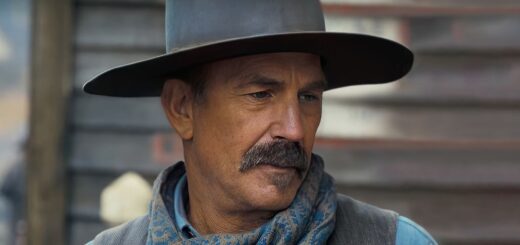“‘Horizon: An American Saga – Chapter 2’ Review: Kevin Costner’s Stunning Visuals Shine, But the Narrative Falls Short at Venice Film Festival”
Just a few months after the first three-hour installment of Kevin Costner’s ambitious Western saga premiered to mixed reviews at Cannes, his second chapter has debuted at the Venice Film Festival. The film continues to showcase picturesque snow-capped Montana landscapes, golden-lit saloons, intense shoot-outs, and wagon trains forging ever westward. Costner’s affection for classic Westerns, including nods to his own work in Wyatt Earp, is evident. However, simply stacking these iconic elements does not guarantee that the result will achieve classic status. Instead, it means there’s a lot of familiar content, though it doesn’t always coalesce into the grand narrative Costner and co-writer John Baird likely envisioned.
In this installment, Sienna Miller’s Frances Kettredge, who lost her family and home in an Apache raid in Chapter 1, is now a resilient homesteader trying to rebuild her life with her daughter Elizabeth (Georgia MacPhail) in Horizon, a town promised as a land of opportunity but is actually just a collection of tents. With the Civil War ravaging the Southeast, the wagon trains keep rolling in. Luke Wilson delivers a standout performance as the wagon train’s guide, grappling with a crime among the settlers that overwhelms his expertise. Costner himself returns as Hayes Ellison, a taciturn horse-wrangler with hidden talents, who has previously eliminated a ruthless antagonist. Now, he faces vengeful brothers on the prairie. Meanwhile, Marigold (Abbey Lee), a sassy prostitute and former love interest of Ellison, is hiding from the same men in the bar where she works.
Revitalizing classic plotlines and using familiar imagery is not inherently problematic, as the Western genre thrives on myth and tradition. Costner and his team have indeed infused these timeworn tropes with modern twists. Their portrayal of the frontier highlights the severe dangers women faced in a lawless society, which goes beyond traditional Western narratives. For example, Mrs. Proctor (Ella Hunt) endures repeated rape and imprisonment while her fellow travelers ignore her plight, a grim reality that could very well reflect historical injustices.
Costner also continues his effort, begun with his directorial debut Dances With Wolves (1990), to address the genre’s historical racism. In the first chapter, the White Mountain Apache community debated how to handle the encroaching “white-eyes,” with options ranging from annihilation to avoidance. This time, the Apaches have largely receded from view, replaced by a Chinese community in Horizon working quietly to build a teahouse. While this portrayal may seem somewhat perfunctory, it represents a notable, if understated, attempt to diversify the narrative.


